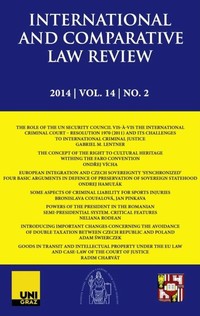Constitutions, Citizenship and the Challenge of National Integration and Nation-Building in Africa
Constitutions, Citizenship and the Challenge of National Integration and Nation-Building in Africa
Author(s): John Mukum MbakuSubject(s): Constitutional Law, Civil Law, Human Rights and Humanitarian Law, Governance, Period(s) of Nation Building, Inter-Ethnic Relations, Politics and Identity, Peace and Conflict Studies, Asylum, Refugees, Migration as Policy-fields
Published by: Univerzita Palackého v Olomouci_1
Keywords: constitutions; multination state; polyethnic state; ethnocultural group; self-government rights; polyethnic rights; special representation rights; national integration; nation-building;
Summary/Abstract: Most countries in Africa are both “multination” and “polyethnic” states. This is due partly to the forced amalgamation, by the European colonialists, of the continent’s “ethnocultural nations” into single economic and political units that were called “colonies.” These colonies eventually evolved into what are today’s independent African countries. Today, many of these ethnocultural groups want to secede and form their own independent polities in order to have more autonomy over policies that affect their well-being, including especially their cultural and traditional values. The struggle by these groups for either outright secession or so-called enhanced rights has created many challenges for governance, national integration and nation-building in many countries in Africa today. Throughout the continent, inter-ethnic conflict, for example, over the allocation of scarce resources, has produced sectarian violence that has led to civil wars (as occurred in Liberia, Sierra Leone, Rwanda, and Nigeria) and significantly endangered prospects for peaceful coexistence. It has been suggested that the solution to this political quagmire is the creation of differentiated citizenship rights for each of these groups. The paper suggests that of the three types of differentiated citizenship that have been suggested as a way to accommodate diversity—self-government rights, polyethnic rights, and special representation rights—self-government rights pose the greatest threat to social, political, and economic stability in the African countries. The solution to this governance challenge may lie in inclusive and robust dialogue, which can help these groups find a way to remain citizens of their present polities, while at the same time, retaining their cultural identities.
Journal: International and Comparative Law Review
- Issue Year: 18/2018
- Issue No: 1
- Page Range: 7-50
- Page Count: 44
- Language: English

